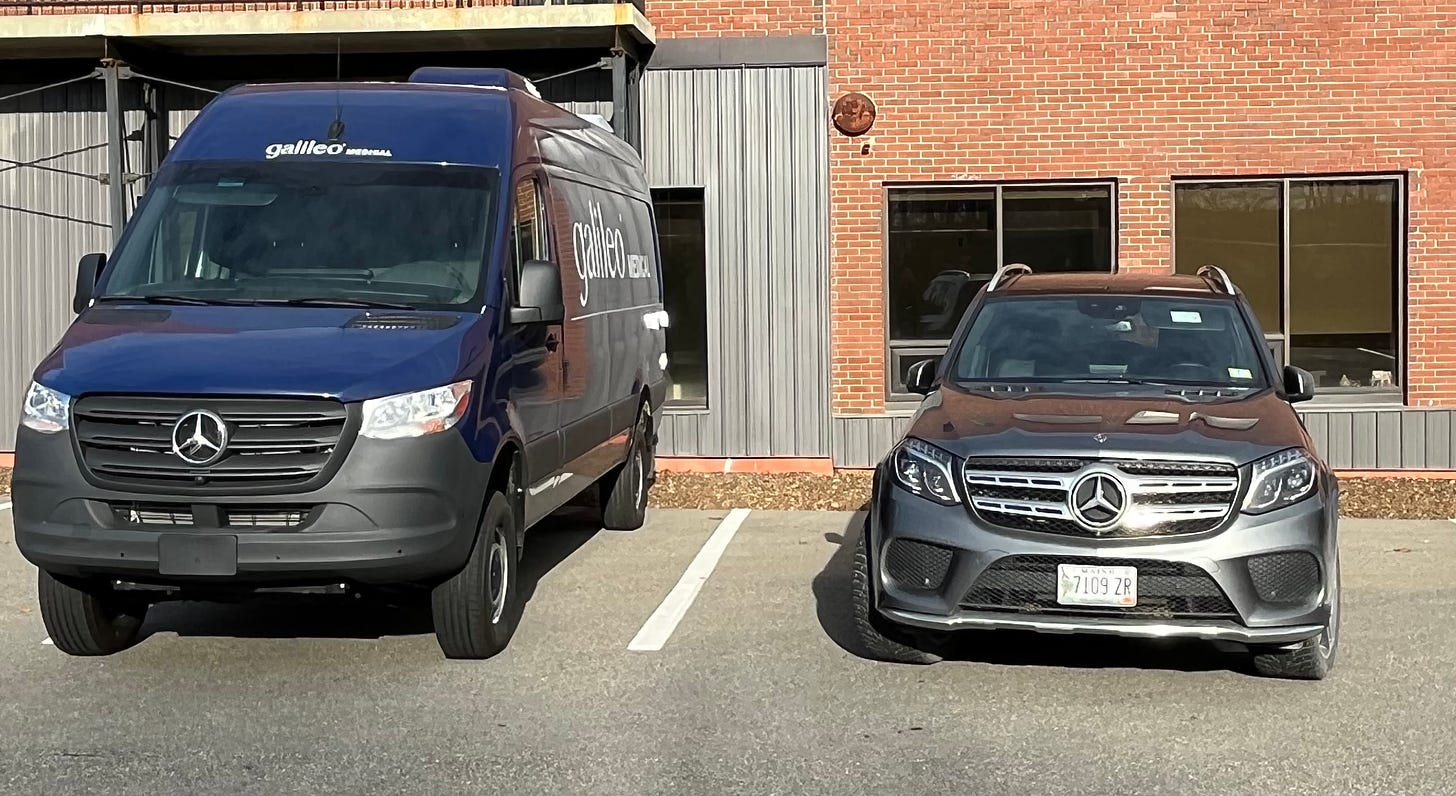On Valentine’s Day last year I published my first post on Substack. Not very long before that I had put it up on WordPress. It had 66 views on Substack, so I was encouraged to keep going. I have been pleasantly surprised by the growth of my readership here and the number of paid subscriptions. I have also made a huge career change since then. I have stopped working in a Fee for Service (hamster wheel) practice and joined Galileo health as lead physician for the state of Maine with offices in Presque Isle, Bangor and Portland. I’m doing house calls and getting paid for driving my Mercedes SUV or the company’s Sprinter van all over the place. I have longer appointments, fewer patients and a cadre of virtual support workers from all over the country, who are part of this big organization with small, personalized local presence. In the paid subscriber only category, PROGRESS NOTES, I am chronicling some of my unique experiences in this novel type of practice.
[So here is what I wrote almost a year ago:]
Old school doctors like me used to give the vast majority of our time and attention to our patients. Our documentation took very little time and our support staff sorted all incoming data – lab results, x-rays, consults and hospital reports. They would prioritize things for us: courtesy copies to just sign, tests we ordered that came back normal, our tests with abnormal results and so on.
In the new world order, doctors and other medical providers are the first ones to see incoming information. It arrives in our inboxes throughout the day and night, and then it is up to us to sort and delegate everything.
This is something we are never scheduled protected time for – we are supposed to do it “between patients”. What that means is that, in order for us to stay on time, no patient visit should ever be as long as it says in our schedule – since we’re expected to do all this important work “between patients”.
I have to admit this has been hard for me to swallow and adjust to. One reason is all the health maintenance and preventive medicine we are required to pay attention to, even though as I keep saying and writing to no avail, that isn’t usually something that requires a medical degree. The other reason, of course, is that if you ever hope to get people to follow or at least consider your medical advice, you need to have a relationship with them, and that takes a little time. You can’t treat people like cattle in a roundup and expect them to follow your suggestions and prescriptions.
I work hard at delivering technically good care. I put effort into my personal relationships with patients. I don’t mind that.
I keep falling behind in monitoring my 23(!) different inboxes. I think there are too many of them and I think much of what’s in there shouldn’t even be coming my way. It’s just a liability trap, designed to make sure that if anything goes wrong, the blame will land squarely upon us.
So how do I tell my patients I’ll be shaving some more time off what they think is the contracted amount of time they have come to expect with me?
We desperately need to reimagine the primary care visit and the primary care flow of information. Bottlenecking equals burnout.
https://Acountrydoctorwrites.blog/2017/12/03/between-patients-the-myth-of-multitasking
https://acountrydoctorwrites.blog/2023/01/22/the-future-of-doctoring-is-already-here-do-more-give-less-or-burn-out/




